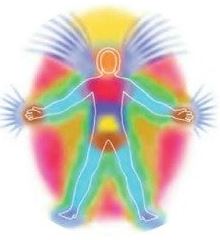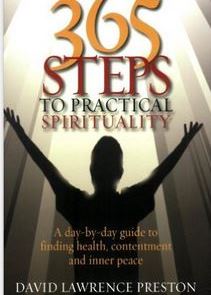One morning I knocked on my son’s bedroom door. ‘Are you up?’ I asked. I heard a groan and then a voice answered. ‘My body’s up, but I’m not!’
Later that day, I turned on the TV. A reporter was interviewing a woman with piercings all over her body. ‘Why did you do it?’ asked the reporter. She replied, ‘It’s my body. I can do what I want with it.’
We use the word ‘my’ for things that belong to us but are not us: my coat, my car, my chair. Expressions like my hair, my face, my brain, my mind, etc. infer that these belong to us but are not us. So what is this entity we call ‘I’? Is it nothing more than a body with a relatively large brain?
Brain cells die and are replaced at least every couple of years
A human body starts out as a handful of cells. It grows, matures, ages and dies. Then it decomposes.
At the molecular level too it constantly changes. With every breath, we inhale ten thousand billion atoms from the environment – each one modifying our physical make-up to some degree. Moreover, 98% of our atoms are renewed every year; if this were not so, we would die within hours, poisoned by our own waste.
We grow a new skin and liver every few months and the skeleton, which appears so solid, regenerates every six months. Not one cell remains from the body we occupied two years ago. Even the brain cells, where our personality and memories are stored, die off and are replaced – yet our sense of self goes on.
Could it be our body and brain are only part of what we are?
If you lost both legs, would you still be the same person? Of course. Our sense of self remains intact even if the body suffers horrendous injuries. As Walt Whitman wrote, ‘There is more to a man than lies between his hat and his boots.’
So who or what dwells within your body? If you contemplate your existence it soon becomes apparent that you are more than just a collection of muscle, soft tissue and bones. There is a part of you that endures despite changes in your physical form. It is non-physical – that is, spiritual.
Are you defined by the roles you play?
Over a lifetime we play many roles. We also occupy many roles at once. A man may simultaneously play the roles of father, son, brother, uncle, teacher, colleague, employer or employee, customer, friend and neighbour. Our roles also change several times a day, depending on where we are and with whom.
If we were what we do, what if we’re not doing it? Do we become a different person? And if we’re doing nothing, do we cease to exist?
Are you what others think you are?
Many people think so. If someone repeatedly calls them an idiot, they begin to believe it. But if you are what others think you are, to whom should you listen? Different people have different opinions of you, and they change over time. Some know you from work, others from home. Meanwhile, your deepest sense of ‘I’ stays constant and remains intact.
What others think of you – your reputation – is outside, in their thoughts. How can this be who you are?
Are you a mind?
To answer this question, we first need to understand what we mean by ‘mind’. Is it not just another word for ‘brain’? No. The mind is not a physical object, it’s an activity – a collection of memories and thoughts. The brain, on the other hand, is physical, a small organ housed in the skull which sends and receives impulses to and from the cells through a network of nerves.
Most of us were brought up to believe that the mind exists only inside the brain, but this is not true. The mind is no more confined to the brain than the electrical field is confined to a magnet. It is located in every cell and also extends into the energy field (biofield) that surrounds the body. Most people have felt they were being stared at on occasions, turned round and found that someone was indeed looking at them. This can only happen because the mind reaches beyond the body and brain.
The mind uses the brain in much the same way as you use your body – as a vehicle. The brain is like the hardware and the mind the software, which begs the questions: Where is the programmer? And who is the operator?
Are you your thoughts?
No. Your thoughts are always changing, but the ‘I’ is constant. Try thinking the same thought for five minutes. Almost impossible. Similarly with your emotions. Moods come and go, but essence of you remains the same.
Even if you practise taking charge of your thoughts, you’re still aware of the ‘I’ that is doing the thinking. As Eric Butterworth wrote, ‘I am not what I think. I am thinking what I think.’
Part of you is aware not only of what you are thinking but also that you are thinking. This part can judge a thought right or wrong, good or bad, and choose to accept or reject it. It is even possible to stop thinking altogether, in deep meditation for instance, and remain fully conscious of self.
So what are you really?
A human being is a complex organism made up a body, mind, and a spark of the Life Force (often called ‘Spirit’) that brings life to the physical form.
- The body is simply an instrument used by the ‘I’ to carry out its wishes.
- The mind is the activity of thinking, remembering and imagining. It also regulates the functioning of the body.
- Spirit is the spark of energy and intelligence that brought you to life and sustains you. When you die, it leaves the body which, with no life force to animate it, decays and returns to dust.
We are fragments of the same Creative Intelligence that underpins the entire universe and have its qualities just as a droplet of seawater has the same qualities as the entire ocean.
We don’t become spiritual beings – we already are. In the words of philosopher Pierre Teilhard de Chardin, ‘We are not human beings having spiritual experiences, but spiritual beings having human experiences.’ All we have to do is let go of whatever is preventing us from realising it!
©David Lawrence Preston, 19.4.2016
Follow us on Facebook and Twitter @Feelinggoodatt
How To Books, 2007


